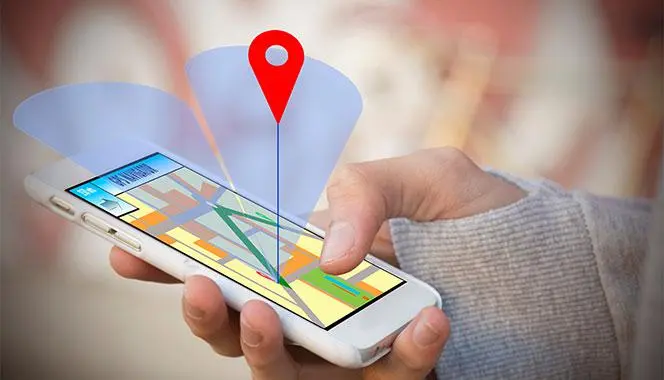With technology playing a significant role in our daily lives, it’s important to teach children about GPS safety. Understanding the potential dangers and responsible use of GPS technologies is crucial in ensuring their safety. By discussing GPS safety with your children, you empower them to navigate this technology responsibly and confidently.
Basics of GPS
GPS, also known as Global Positioning System, is a satellite-based navigation system that provides location and time information. This technology works by triangulating signals from multiple satellites to determine the user’s precise location.
Its benefits are vast, ranging from assisting in navigation and tracking to emergency rescue operations. However, it’s important to familiarize your children with the various applications of GPS and the potential risks associated with its use.
Identifying Potential Risks and Dangers
While GPS technology can be incredibly useful, it also poses some risks, especially for children. It’s crucial to discuss potential risks so that your children can be aware and cautious.
Examples of risks include cyberbullying, privacy invasion, and location tracking. Sharing real-life incidents can help illustrate the importance of being vigilant when using GPS devices.
Building Trust and Open Communication
Establishing trust and open lines of communication with your children is essential for addressing GPS safety. By actively listening to their concerns and avoiding judgment or criticism, you create a safe space for them to express themselves. Encourage your children to ask questions and share any concerns they may have about GPS technology.
Setting Clear Boundaries and Limitations
To ensure responsible GPS usage, it’s important to establish clear rules and guidelines. Encourage your children to use GPS devices responsibly and discuss the consequences of breaking the rules. Consistently enforcing these boundaries will reinforce the importance of responsible usage.
The Power of Privacy Settings and Features
Most GPS applications and devices offer privacy settings that can be customized to protect personal information. Teaching your children how to navigate these settings is crucial in ensuring their privacy and minimizing potential risks. By taking steps to safeguard personal information, your children can use GPS technology confidently.
Education on Cyberbullying and Strangers Online
Discussing the dangers of cyberbullying and online predators is vital for your children’s safety. Teach them strategies for dealing with cyberbullying and reporting inappropriate behavior.
Emphasize the need to be cautious while interacting with strangers online, as GPS technology can inadvertently expose personal information.
Enhancing Location-sharing Etiquette
Responsible location sharing is important to teach your children. Help them understand when and with whom it is suitable to share their location information. Discuss the potential dangers of indiscriminate location sharing, as it may compromise their privacy and safety.
Encouraging Smart GPS Habits Outdoors
When using GPS systems outdoors, it’s crucial for children to remain safe. Share tips with them on how to prepare for outdoor adventures and emergencies using GPS. However, it’s also important to make them aware of the limitations and uncertainties of GPS technology in outdoor settings.
Addressing GPS Safety at School and Social Gatherings
GPS safety is relevant not only during daily activities but also during school events and social gatherings. Encourage your children to be cautious and responsible when using GPS at school or social events. Collaborating with schools and event organizers can help promote GPS safety measures in these settings.
Real-life Stories: Learning from GPS-related Incidents
Presenting real-life stories and the consequences of irresponsible GPS use can serve as valuable learning opportunities for both children and parents. Encourage discussions and reflections based on these narratives to reinforce the importance of responsible GPS usage.
Empowering Children with Self-defense Strategies
Teach your children about personal safety while using GPS and empower them with practical self-defense measures. Ensuring their personal security is crucial in navigating the potential risks associated with GPS technology. By equipping them with this knowledge, children can make informed decisions and respond effectively to potential dangers.
Engaging Parents and Guardians: Supportive Measures
Parents and guardians should stay informed about the latest GPS technologies to better support and protect their children. Share resources and tools that can help monitor and guide your children’s GPS usage. Remember, your involvement and leading by example play a vital role in cultivating responsible GPS habits.
Conclusion:
Discussing GPS safety with your children is crucial for their overall well-being. Recapitulate the five smart strategies discussed in this article: understanding the basics of GPS, identifying potential risks, building trust and open communication, setting clear boundaries, and utilizing privacy settings. Reinforce the importance of ongoing conversations about GPS safety and the role parents and guardians play in fostering responsible GPS habits.



